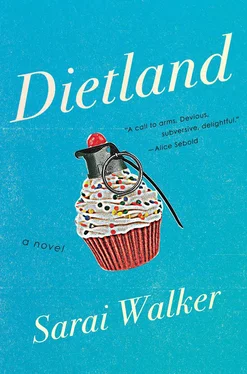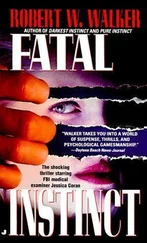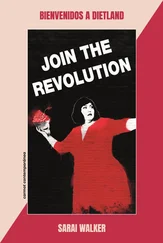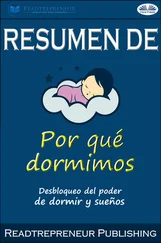At work I continued to pick scraps off plates, delighting in the taste and then spitting the food out in the toilet or into a paper towel. Sometimes, though, when Luis was in the alley, I’d eat a few french fries off dirty plates, chewing and then swallowing. Just a few in my belly eased the pain in my head.
On the night of a retirement party, I worked extra hours to help Chef Elsa prep. The woman who did the baking in the restaurant had prepared macaroons earlier in the day, which Elsa asked me to arrange on platters. Alone in the kitchen, my hands sheathed in crinkly plastic gloves, I stacked the macaroons in a pyramid formation. Six weeks of systematic starvation had weakened me. For every macaroon that made it onto the platters, another went into my apron pocket. When I finished, Delia took the macaroons into the dining room, noticing neither the slightness of the pyramids nor the bulges in my pockets.
I went to the bathroom, but two waitresses were there, styling their hair and putting on makeup, so I went into the back alley and sat down on the concrete steps next to the trash cans. When my hand first grazed the macaroons in my pocket, I could have stopped for a moment and used my training; I could have written in my food journal or done jumping jacks, but I didn’t. One macaroon slipped into my mouth, and then two, and then as many as would fit. I consumed them so hurriedly that at first I didn’t enjoy the shock of creamy coconut against my tongue. I stuffed three macaroons into my mouth before stopping to catch my breath, and then I made room for two more. My face flushed and burned and I began to cry. I knew what I was doing was wrong, but I couldn’t eat the macaroons fast enough. A ball of coconut formed in my throat. I paused to swallow, then continued working through my stash, wiping my nose with my sleeve as I chewed. I was still wearing plastic gloves. I felt like a criminal.
As I swallowed the last cookie, my face stained with tears and mascara, I saw Luis and Eduardo nearby in the alley, smoking. I didn’t know how long they had been there. They were looking at me—they had seen.
After so many weeks without much food, my stomach, shriveled like a raisin, was struggling to absorb the explosion of calories. I felt a sharp pain at my center as I made my way home. I expected to be sick, but once the pain was gone, I felt better than I had in ages. My headache disappeared. I had grown so accustomed to having a headache that not having one felt strange; there was a feeling of release, as if a belt that had been fastened tightly around my head was suddenly loosened. I slept through the night for the first time since becoming a Baptist.
The next day when I awoke, the hunger was there again. I had slept late and missed breakfast, so I drank two Baptist Shakes, but they didn’t satisfy my hunger beast, and when he wasn’t satisfied he gnawed at me. I couldn’t bear being trapped in the house with him and decided to eat my dinner, though it was only one o’clock. Then I ate a second dinner, then drank another shake; then I heated up a Baptist pizza, which was just shavings of plastic cheese on a crust as thin as matzo. The kitchen counter was littered with empty pink trays and bottles and pieces of silver plastic, which were gummy and stuck to the countertops. I gathered up the evidence and took it outside to the garbage can so that no one would find out. As I made my way back into the house, I saw a woman with a camera pointed at me. She had seen.
I didn’t feel full or happy after my binge. With the macaroons, I’d had a taste of real food, and now I wanted more. I called Nicolette. “I thought you were dead,” she said. That’s what people had said about Eulayla Baptist, too.
“I’m not dead, I’ve just been removed from the world of food.” We went to the mall, Nicolette’s mother driving us in her gold Mercedes with her bumper sticker: NOTHING TASTES AS GOOD AS SKINNY FEELS. Nicolette could eat whatever she wanted and never gain weight—that’s why her mother hated her, she said. At the mall, we ate chili dogs and nachos with extra jalapeños and washed it all down with sugary cherry lemonade. We bought soft pretzels and funnel cakes dusted with powdered sugar and ate it all. We made a point of browsing CDs and shoes, but we were only at the mall for the food.
Before leaving, I bought half a dozen donuts from Winchell’s to take home, topped with white icing and rainbow sprinkles.
After bingeing on donuts at 2 a.m., I feel: euphoric
At my next meeting with Gladys, filled with guilt, I confessed everything. She held my hand, urging me to find the strength to transcend my bodily cravings. “A Baptist isn’t afraid to admit she failed,” Gladys said, “but a Baptist never loses faith in herself either.” As I listened to her, it almost seemed possible. She gave me a pamphlet with Eulayla on the cover, entitled “I Don’t Want to Be Thin—I Choose Health!” [9] Memorandum: From senior vice president [name redacted] to Eulayla Baptist (February 14, 1998): “Pursuant to our last meeting, those fat feminist cunts in Michigan with their ‘Love Your Body’ bullshit are still chanting outside our clinic in Ann Arbor. This movement cannot be allowed to spread. We’ll counter them with our health jargon (did you approve those pamphlets yet?). They won’t be able to refute our death stats with their feel-good crap. We might want to get a couple MD-for-hire types on the payroll to farm out to the media. That cardio guy in Miami would be perfect for this. Can you authorize payment, please?” ( Adventures in Dietland, Baptist Weight Loss Internal Memo Index, p. 351. N.B. See also A. Adamson, G. Hoyt, and O. Rodgers, “‘I Don’t Want to Be Thin—I Choose Health!’: Baptist Weight Loss Advertising and the Birth of Obesity Epidemic Rhetoric,” Eating Disorder Quarterly 14, no. 7 [2004]: 97–119.)
There were sections on high blood pressure, diabetes, and heart disease. Gladys said I was at risk for all these diseases if I quit the Baptist Plan. “Do you want to die before you’re forty, hon?” She told me about her sister who was the same size as me and infertile.
I cried as Gladys weighed me and I discovered I had already gained back half the weight. All of the suffering I’d endured was for nothing and the new life I’d envisioned was slipping away, all because I was a pig. I resolved to do better and become a good Baptist again. I wasn’t going to meet my goal weight on schedule, but Gladys assured me this was normal, that it happened to everyone, including her. [10] Memorandum: From [name redacted] to senior vice president [name redacted], cc: Eulayla Baptist (March 1, 1990): “Did you get that memo from the lawyer? She says the ‘Results Not Typical’ disclaimer on our posters of Eulayla needs to appear in much larger font. Christ, is there any way around this? We don’t want people to notice it.” ( Adventures in Dietland, Baptist Weight Loss Internal Memo Index, p. 357.)
The Baptist lifestyle consumed me again. I hid in my bedroom, accepted feeling sick, avoided my friend, and in my head repeated the phrase the pink trays, the pink trays, like a mantra, reminding myself that if I only ate what was in the pink trays and nothing more, I would become thin and I wouldn’t die before age forty.
Each week as I left the clinic with my pink trays and shakes, I promised myself I’d be good. But it didn’t matter. I wouldn’t remain a Baptist for much longer.
When I arrived at the clinic one afternoon, the women were crying. A distraught Gladys told me that Eulayla Baptist and her husband had been killed in a car accident in Atlanta. “There was a rainstorm,” Gladys managed to say. “They lost control of the car. She’s gone. ”
I looked at the poster of Eulayla holding up her fat jeans. “ Gone? You mean forever? That’s impossible.” I steadied myself against a chair.
Читать дальше












